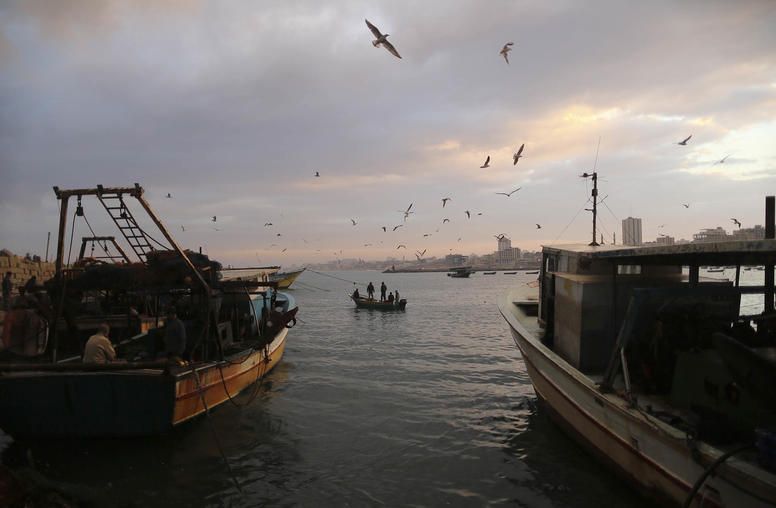Protests Spark New Questions Ahead of Egypt's Elections
With much anticipated parliamentary elections scheduled to take place less in Egypt less than a week from now, what are the political implications of the current unrest taking place in Cairo and elsewhere in the country?
November 23, 2011
- With much anticipated parliamentary elections scheduled to take place less in Egypt less than a week from now, what are the political implications of the current unrest taking place in Cairo and elsewhere in the country?
- How broadly representative of Egyptian public opinion are the voices in Tahrir Square?
With much anticipated parliamentary elections scheduled to take place less in Egypt less than a week from now, what are the political implications of the current unrest taking place in Cairo and elsewhere in the country?
With voting set to start on November 28th -- in what is supposed to be Egypt’s first free parliamentary elections in decades – many Egyptians and Egypt-watchers are rightfully concerned about how, or even whether, the voting process will play out as planned. The bloody and lethal unrest that has been playing out in Egypt over the last few days underscores how thin Egyptian patience has run with the military and points to pervasive skepticism toward the ruling military council’s claims of disinterest in long-term power.
Many Egyptians are not prepared to wait much longer to see a transition to civilian rule. They are angered both by the slow pace of the transition and by repressive tactics on the part of the military leadership that smack of “business as usual” seen under the Mubarak regime. Most immediately, it was the Supreme Coucnil of the Armed Forces’ (SCAF) apparent move to dictate terms that would enshrine a protected and guardianship role for themselves in a future Egyptian constitution that brought Egyptians back out to the streets. The violent crackdown has served only to swell the ranks of protesters and provoke international condemnation, and the SCAF has been left scrambling to respond. Field Marshal Tantawi’s announcement on November 22nd that not only would Monday’s parliamentary elections proceed but that a presidential election would be moved forward to no later than July 2012, represents a strong concession to the protesters and speaks to the intense pressure the military is feeling to assure Egyptians that they have no aspirations towards governing the country on a permanent basis. Five days of violent demonstrations that have left over 30 protesters killed and close to 2,000 injured, have seemingly taken their toll.
However, while the SCAF’s November 22nd announcement also included the suggestion of a popular referendum on immediate transfer to civilian power, protesters are not leaving Tahrir Square and instead are pushing for an unconditional end to military rule. While many protesters have accused the SCAF of provoking the violent clashes in order to justify postponing elections, the SCAF’s move seemed designed to emphasize a commitment to a timely transition of power. But continuing unrest raises the possibility of a delay (which itself could spark further instability) or of elections marked by violence and unrest that the police and military have minimal ability to manage.
How broadly representative of Egyptian public opinion are the voices in Tahrir Square?
Tantawi’s insistence on November 22nd that he would step down if a popular referendum were to call for such a move suggests that SCAF is putting its faith in the millions not out in Tahrir Square, wagering that the protesters do not represent the larger populace. While true that many Egyptians are loathe to embrace further instability and uncertainty, it is also the case that the violent and authoritarian response to the current protests has only served to swell the ranks of those in Tahrir. In fact, while the Muslim Brotherhood officially refused to back the demonstrations currently taking place – concerned about the potential for delaying an electoral process that is likely to reward them with strong representation -- many of the group’s younger members have joined the protesters in the last couple of days. And while many of those in Tahrir (primarily youth who played a strong role in the revolution) have until now opposed the upcoming election timeframe -- precisely because of the perceived advantage that this early date gave to the well-organized Muslim Brotherhood -- increasing numbers of their ranks are reluctantly embracing it as a minimal concrete step on the road to transition.
For others, the only acceptable move by the military remains the full transfer of caretaker power to a civilian government. There are reports that SCAF has accepted the earlier-tendered resignation of the current cabinet and offered the position of interim prime minister to Dr. Mohammed ElBaradei – a leading figure in the liberal opposition. However, ElBaradei is apparently hesitant to accept, given uncertainty over the extent to which the military council would continue to call the shots if remaining at the helm. Meanwhile, results of the just-released University of Maryland's 2011 Annual Arab Public Opinion Poll find that a plurality of Egyptians believe that the military is acting to slow or reverse the gains of the revolution.
To many observers, Tantawi’s speech on November 22nd was reminiscent of the speech the embattled Mubarak gave before being forced to step aside: paternalistic and defiant in tone despite a nod to compromise that did not go far enough. If the protesters consider SCAF’s response to their demands as “too little too late” and continue to stand their ground, the ball of how to manage the situation leading up to the scheduled elections will be in the military council’s court. How they handle it might well determine the soundness of SCAF’s gamble that a majority of the Egyptian electorate stands behind them.
Explore Further
-
Eye on the Middle East and North Africa
USIP Experts Comment on Libya, Syria, Yemen, Egypt and More



